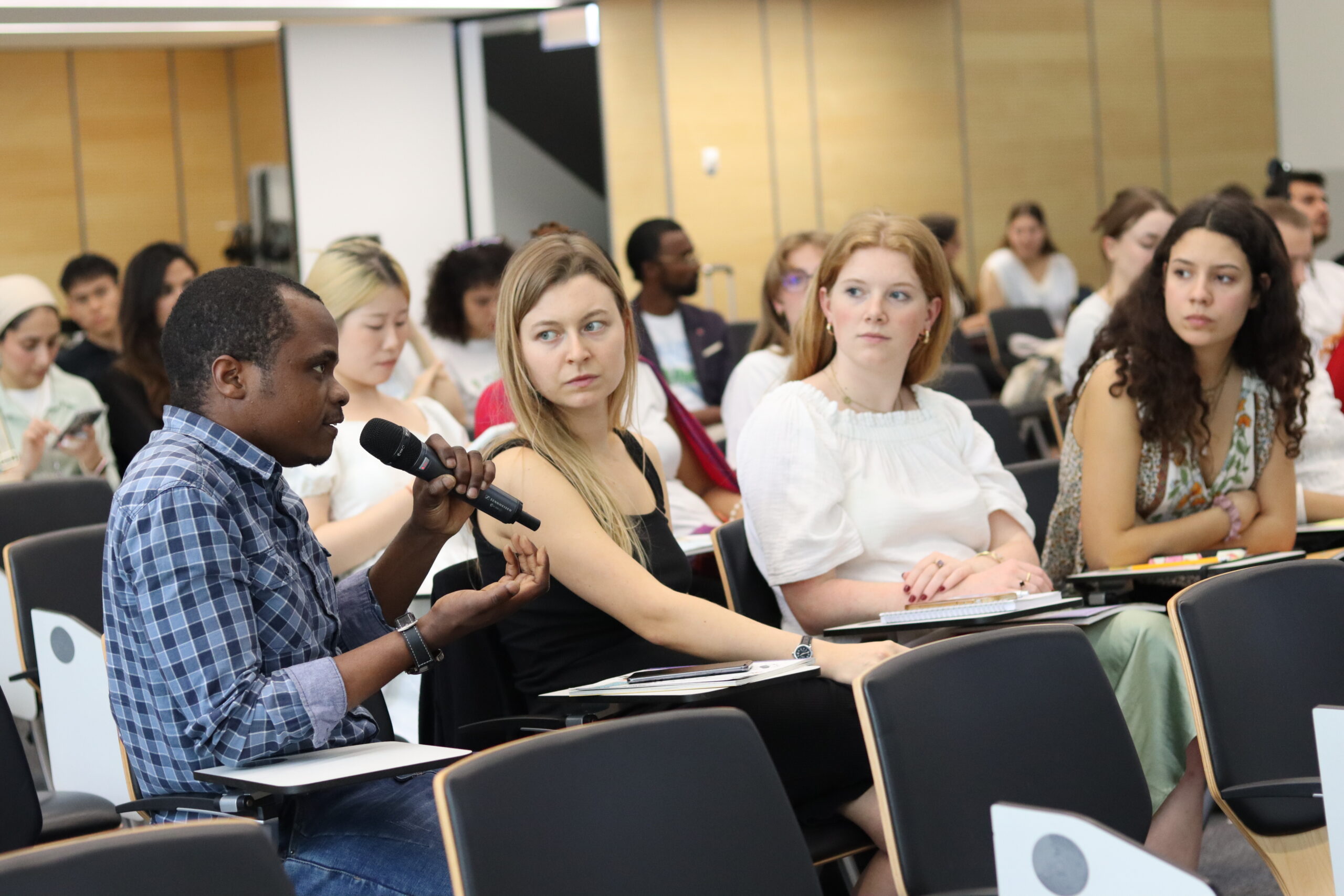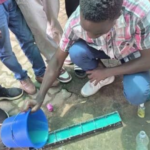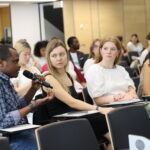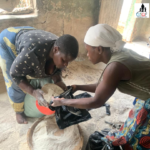By:
Thursday, June 5, 2025
Donation
Children at the Crossroads—Illicit Financial Flows, Unsustainable Debt, and Tax Abuse: The Hidden Disasters Undermining Resilience?.
“Every Day Counts – Act for Resilience Today”
Geneva, June 2025. The Grown Too Quick Foundation (GTQF) proudly represented children and youth from the Global South at the 8th Global Platform for Disaster Risk Reduction (GPDRR), which took place from June 1 to 6 in Geneva, Switzerland.
While the platform focused on environmental and climate-related risks, it also offered a critical space, especially during “The Youth Blast session” hosted by the United Nations Major Group for Children and Youth (UN MGCY), a United Nations General Assembly mandated, official, formal and self-organised space for children and youth to contribute to and engage in certain intergovernmental and allied policy processes at the United Nations, to address less visible but equally devastating threats: illicit financial flows (IFFs), unsustainable debt servicing, and tax abuse by multinational corporations.
These are not just economic issues. They are structural disasters that undermine the resilience of entire nations, particularly affecting children and youth.
The Economics of Disaster Risk
Expert experiences shared at GPDRR paint a grim picture:
-Over 20% of some African countries’ government revenues are spent on external debt servicing.
-According to Debt Justice UK, when more than 15% of revenue is allocated to debt, critical services like education, recovery efforts and healthcare suffer.
-Multinational corporations exploit tax treaties, shift profits, and engage in trade misinvoicing, draining billions from African economies every year.
These hidden disasters create a vicious cycle: underfunded social services → increased vulnerability → reliance on aid and unsustainable debt → deeper fragility. The impact on children is direct and devastating.
A Disaster for Children and Youth
When budgets are slashed to repay unsustainable debt or accommodate corporate tax loopholes:
-Healthcare systems collapse
-Schools remain under-resourced
-Climate adaptation, preparedness and recovery efforts stall
Children are left more exposed to shocks, from floods to pandemics. They experience trauma, face hunger, and often miss out on education and safety.
At GPDRR, Mada D Nkhoma, representing the GTQF, engaged in meaningful discussions with other purpose-driven youth delegates, including Mafalda Mendonca, Valeriana Augusta Broetto, and Tekle Bregvadze, whose experiences were insightful. We argued that resilience is not just about flood barriers and early warning systems. It’s about global equity, financial capacity, and dignity.
Rethinking Resilience and Language
One powerful message from the platform: Stop calling them “natural disasters.” Hazards may be natural, but disasters result from human decisions, policies, and inequalities that make communities vulnerable. The language we use shapes our solutions. If we fail to recognise economic injustice as the root cause of disasters, we will never build truly resilient societies.
This shift in language is critical. It challenges us to act on root causes—not just symptoms, of disaster. Boardroom decisions, economic systems, global financial policies, and corporate behaviours must be held accountable.
What Needs to Happen
GTQF joins voices from across the globe in calling for:
-Youth-centred policy solutions
-Reform of the global financial architecture
-Support the call for swift UN-championed debt architecture reforms, including the UN Framework Convention on Sovereign Debt
The Sendai Framework offers the mandate. What’s needed now is action.
GTQF’s Commitment
At GTQF, we champion the rights and potential of children and youth. We believe resilience begins with economic justice. And we will continue advocating, educating, and empowering young people to lead this transformation.
Because, truly, every day counts!
Search Here







